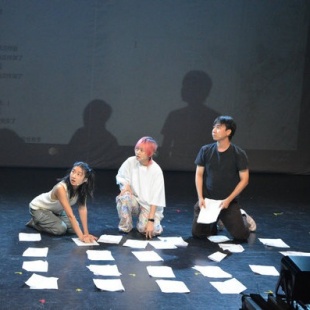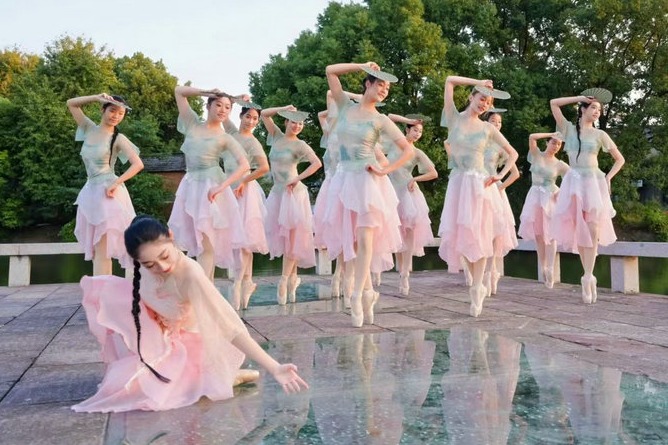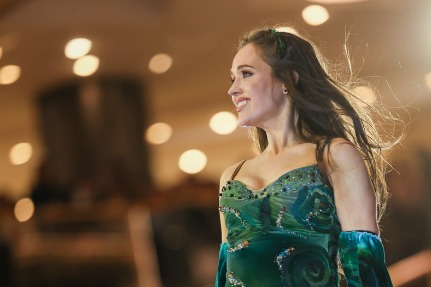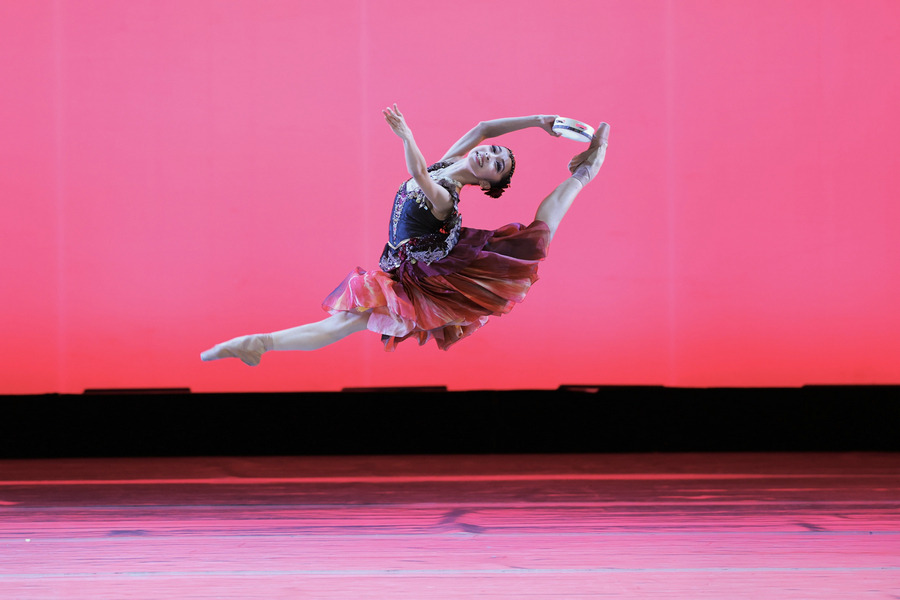Tech changes the theater game
New digital program brings together creators to make the stage more innovative and interactive, Li Yingxue reports.

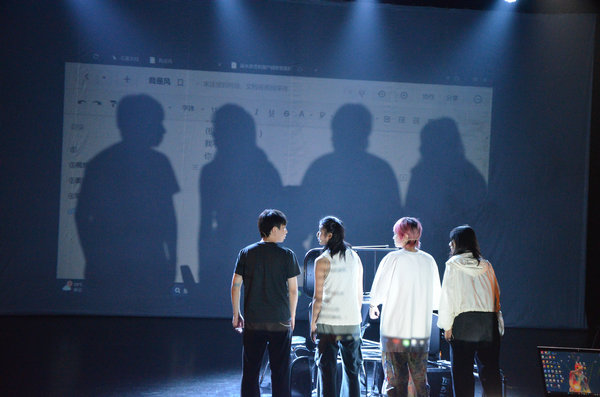
One participant, Wang Jiaxuan, whose background is in digital media art and human-computer interaction, found the idea especially compelling. "When I first heard about digital theater, it felt fresh and full of creative possibilities," Wang says.
"I imagined turning the entire play into an interactive product, where the audience becomes the user of that product. Through this process, we can explore how to optimize the audience's experience."
Wang and his team created Delete, a highly participatory performance. "We designed a program called Four Cleaners, which clears storage space on mobile phones. During the performance, actors invited audience members onto the stage for direct interaction," he explains.
"We wanted to work with the audience to clear away the various 'junk data' that accumulates in our daily lives. For example, when you turn off your alarm in the morning but accidentally take a screenshot because you don't want to get up. That image is useless to you, and you might delete it later. These small things generate unnecessary data on your phone or other devices."
On stage, a QR code allows the audience to vote on whether certain items should be deleted. Real-time cameras capture every decision made by the actors and audience. "If, at any point, the audience chose to delete something, that node would disappear. If they didn't, it would remain," Wang says. "At the end, we presented a complete video documenting the process."
Looking ahead, Xiao believes digital technology will play an increasingly decisive role in theater, both in themes and forms. "In the future, as we make better use of technologies like VR, our viewing experiences will change. It may lead to more solitary, fully immersive forms of engagement," she says.
"Such an experience envelops each individual, but it may also make the audience feel lonely, because in that world, they are alone. It is a double-edged, paradoxical experience."
Through this year's showcase, Xiao hopes audiences will reflect on their own relationship with technology. "At the same time, I hope they can see that new seeds are being planted — young creators are using what they know to explore new forms of theater," she says.


